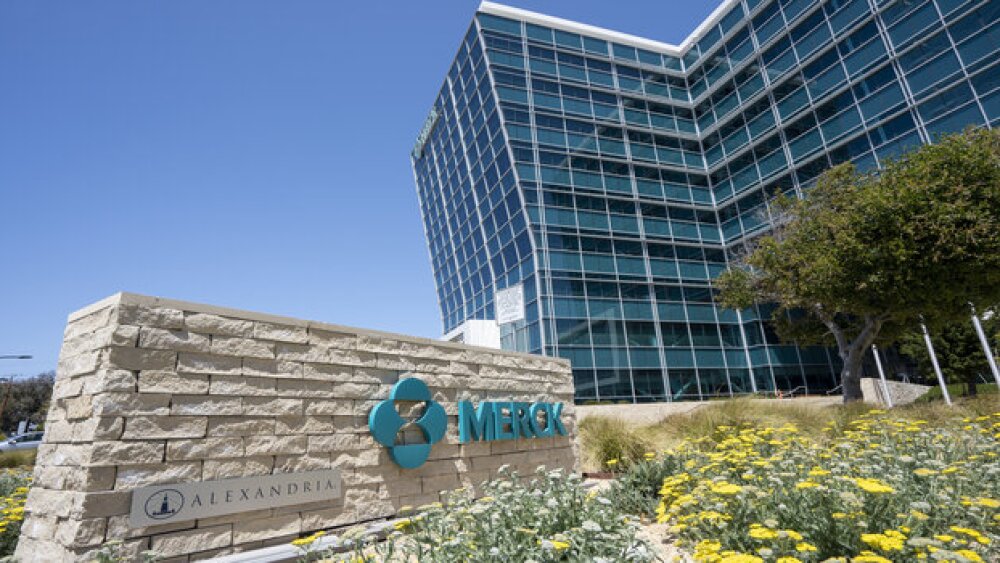After dropping $4 billion on a deal with the Japanese company last year, Merck is getting back some of its investment as Daiichi Sankyo buys into a Phase I/II T-cell engager therapy acquired from Harpoon Therapeutics.
Merck and Daiichi Sankyo are diving deeper into the antibody-drug conjugate space, expanding their 2023 partnership to now include Merck’s investigational T-cell engager. Daiichi announced Tuesday it’s buying it to co-develop the asset.
The two companies are in a bit of a quid pro quo arrangement with the original deal, signed in October 2023, in which Merck dropped $4 billion upfront to its Japanese partner to advance three of Daiichi’s DXd-based antibody-drug conjugates (ADCs) for various indications across solid tumors. The agreement has a potential value of $22 billion.
Now, Daiichi is sending back $170 million to Merck to jointly develop and commercialize MK-6070 worldwide, except in Japan where Merck will retain rights. Merck is on the line for manufacturing and supply of the tri-specific T-cell engager, which targets DLL3—a Notch ligand expressed in small cell lung cancer and neuroendocrine tumors. The partners will divvy up the R&D and commercialization expenses and share profits, if approved.
The ADC is already in a Phase I/II clinical trial as a monotherapy for both indications in patients with advanced cancers expressing DLL3. It will also be tested soon with another Daiichi-Merck partnered ADC, ifinatamab deruxtecan, in patients with small cell lung cancers.
MK-6070 is an asset Merck acquired in its $680 million buy of Harpoon Therapeutics earlier this year. Harpoon had several T-cell engagers in the pipeline, with the DLL3-targeting asset its lead candidate.
Amgen won approval for its bispecific T-cell engager aimed at the same target—DLL3—in May 2024. Imdelltra was approved for extensive-stage small cell lung cancer. William Blair analysts projected 2028 sales at $842 million, with future blockbuster potential.
The Daiichi-Merck partnership could use a win after its first market-hopeful was rejected by the FDA. In June 2024, the FDA issued a Complete Response Letter for the duo’s ADC patritumab deruxtecan, proposed for treatment of locally advanced or metastatic non-small cell lung cancer.






